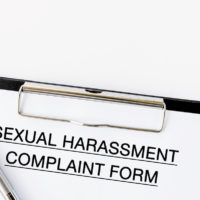Proving Retaliation When Employers Begin Finding Problems With An Employee After A Discrimination Complaint

The federal employment discrimination laws, such as Title VII of the Civil Rights Act of 1964 (Title VII), the Americans with Disabilities Act, and the Age Discrimination in Employment Act (ADEA), contain anti-retaliation provisions. The anti-retaliation provisions protect employees from retaliation when they complain about perceived discrimination in the workplace. Unlawful retaliation occurs when an employer subjects an employee to an adverse employment action, such as a demotion, reduction in pay, or discharge, because the employee complained about perceived discrimination in the workplace.
Having been committed to fighting for the rights of employees who have been retaliated against for invoking their rights under the federal employment discrimination laws, our Marion County, Florida retaliation attorneys have learned that employers often target employees for retaliation after they complain about perceived workplace discrimination. In many cases, employees who have never been disciplined for any reason suddenly find themselves subjected to disciplinary action, given negative performance evaluations, or accused of misconduct after they complained about perceived workplace discrimination. The recent decision by the U.S. District Court for the Western District of Texas in Jiang v. Texas Comm’n on Environmental Quality, 2018 WL 384827 (W.D. Tex. Aug. 13, 2018) illustrates that evidence showing that an employer suddenly began finding problems with an employee after the employee complained about perceived workplace discrimination can be used to prove that the employee was retaliated against in violation of federal employment discrimination laws.
Twenty-Year Employee With No Disciplinary History
In that case, Shiyan Jiang (Jiang) claimed that the Texas Commission on Environmental Quality (the TCEQ) violated Title VII and the ADEA by firing him in retaliation for complaining about workplace discrimination. Jiang, who is 73 years old and born in China, began working for the TCEQ in 1993. Jiang was employed as a civil engineer. Before making a discrimination complaint, Jiang had not been formally disciplined in any way during his long employment with TCEQ. In November 2014, Jiang filed an internal complaint that his supervisor discriminated against him on the basis of his age and race. Jiang filed a second internal discrimination complaint in August 2015.
In December 2015, Jiang’s supervisor, Wilson, placed him on a six-month disciplinary probation. Wilson claimed that Jiang was put on probation because of his alleged failure to follow instructions from supervisors and unprofessional conduct. While on probation, Jiang participated in two progress meetings: one on February 11, 2016 and another on April 21, 2016. At the April 21 meeting, Jiang again complained that he was being discriminated against because of his age and race. On April 22, Jiang’s team leader, Peters, drafted a recommendation to fire Jiang. A week later, Wilson adopted Peters’ recommendation and issued a notice of intent to discharge Jiang on April 29. The proffered reason for Jiang’s termination was unprofessional conduct. After unsuccessfully appealing the decision to terminate his employment, Jiang was fired in June 2016.
Evidence of Employer Retaliation After Employee Discrimination Complaint
The TCEQ filed a motion with the trial court seeking dismissal of Jiang’s retaliation claim. In doing so, the TCEQ argued that Jiang’s retaliation claim was baseless and must be dismissed without allowing Jiang to present his case to a jury for resolution. The trial court denied the TCEQ’s motion for dismissal and ruled that it was for a jury to decide whether the TCEQ fired Jiang in retaliation for complaining about discrimination.
Suddenly Problems With Complaining Employee Surface
In denying TCEQ’s motion for dismissal, the trial court found substantial evidence of the TCEQ’s retaliatory intent. First, the trial court pointed out that the TCEQ had a pattern of retaliating against employees who complained about discrimination. One employee complained to Wilson that he was being discriminated against on the basis of age. Wilson placed him on disciplinary probation two weeks later. Another employee complained to a manager that she was being discriminated against on the basis of age. Within a month, the manager drafted a performance improvement plan for the employee. Another employee complained to Peters that he was being discriminated against on the basis of age and race. Four months later, Peters placed this employee on a performance improvement plan. This evidence, the trial court concluded, constituted “circumstantial evidence” of the TCEQ’s “retaliatory intent” against Jiang.
Second, the trial court pointed out that Jiang was recommended for termination the day after he complained about age and race discrimination at the April 21 meeting. The trial court found that the “suspicious timing” between Jiang’s complaint and termination was evidence of the TCEQ’s retaliatory intent against Jiang. Finally, the trial court explained that “there is the lack of evidence that Jiang was formally disciplined in his more than 20 years at [the] TCEQ before he filed his discrimination complaint in August 2015.” In other words, prior to Jiang’s discrimination complaint, Jiang had never been subjected to disciplinary action and it was not until after Jiang complained about discrimination that problems with his workplace behavior suddenly surfaced. From the “totality of this evidence,” the trial court concluded, a jury could reasonably find that the TCEQ fired Jiang in retaliation for complaining about perceived age and race discrimination.
Free Consultation With Central Florida Retaliation Lawyers
Based in Ocala, Florida and representing employees throughout Central Florida, we have extensive experience representing employees who have been retaliated against for complaining about discrimination in the workplace. If you have been the victim of retaliation or have questions about your protection from retaliation under employment discrimination laws, please contact our office for a free consultation with our Marion County, Florida retaliation attorneys. Our employee rights law firm takes retaliation cases on a contingency fee basis. This means that there are no attorney’s fees incurred unless there is a recovery and our attorney’s fees come solely from the monetary award that you recover.


 Close Menu
Close Menu